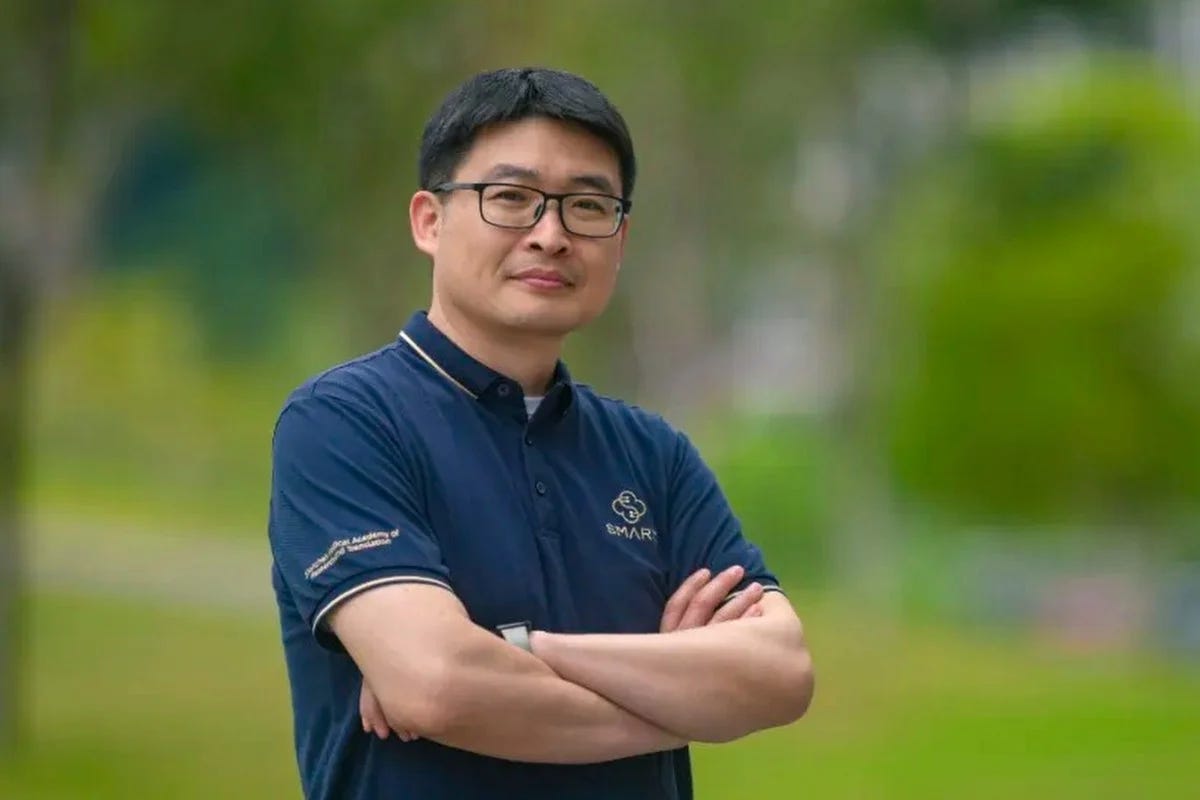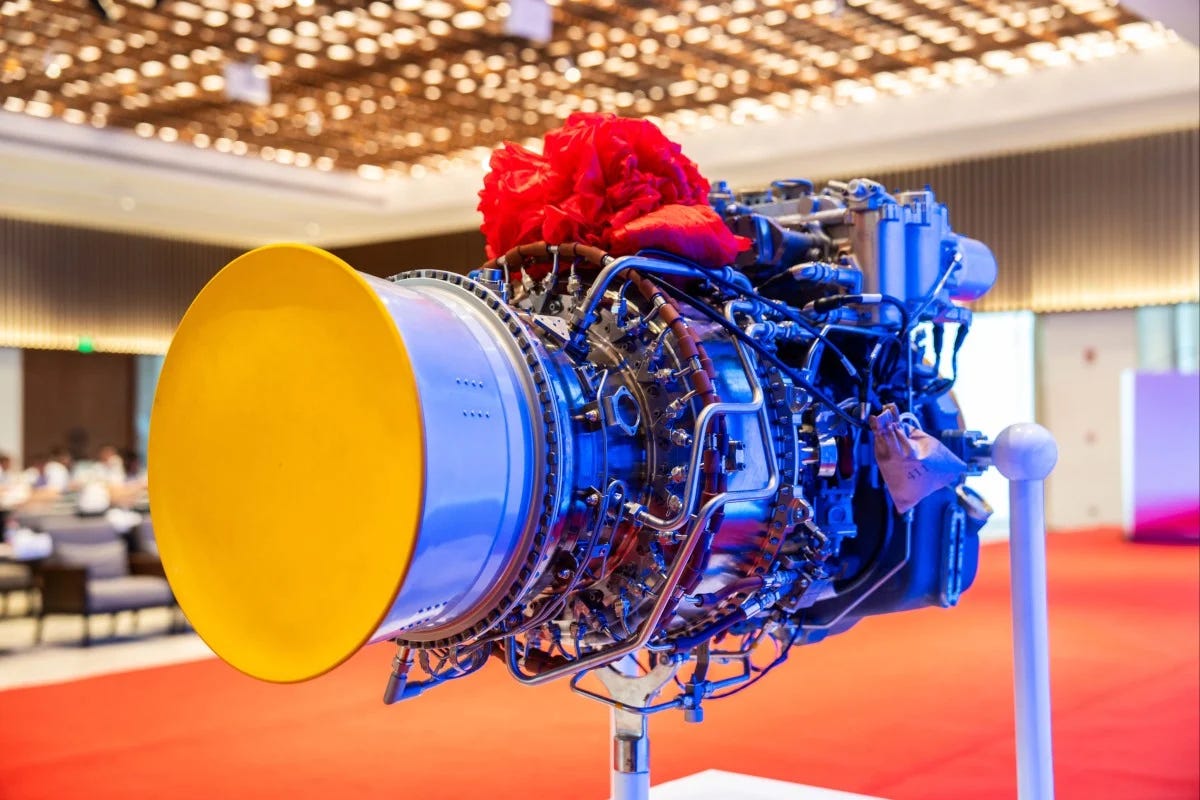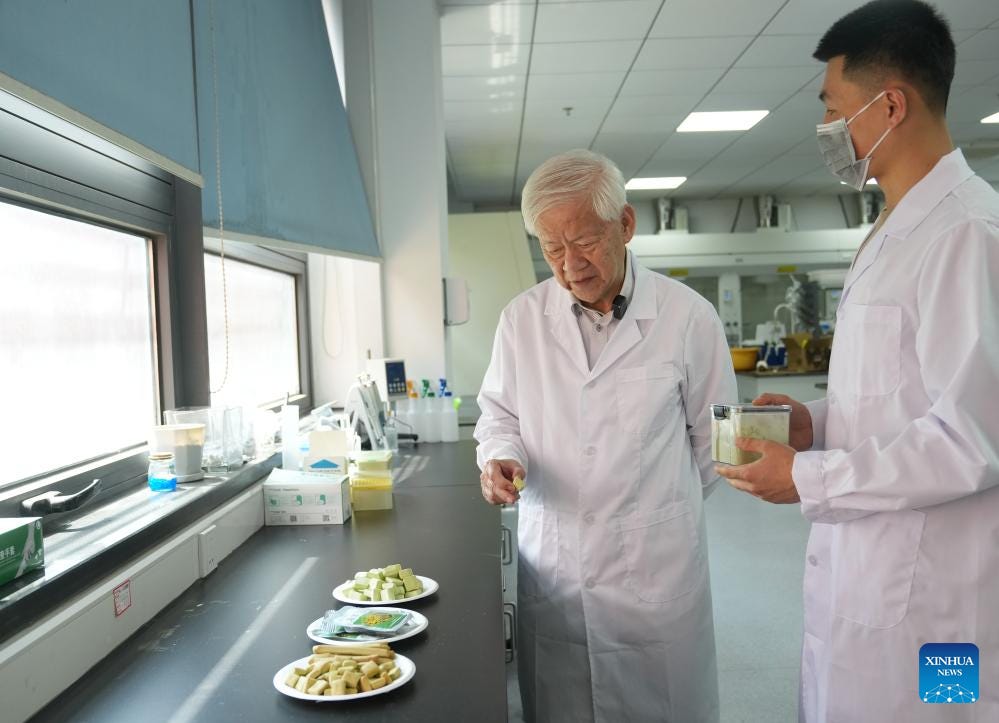China This Week: Xi-Trump Trade Call, Iran Missile Ties, Harvard Visa Ban Blocked
This week in China, we explore key developments in its domestic and foreign policy landscape.
China Quote 🗩
“I just concluded a very good phone call with President Xi, of China, discussing some of the intricacies of our recently made, and agreed to, Trade Deal,” Mr. Trump said. The call lasted around an hour and a half, he added, and “resulted in a very positive conclusion for both Countries.”
President Donald. J Trump
Economic Activity🏦
China Warns BYD, Rivals to Self-Regulate on Price War Woes
Linda Lew writes in Bloomberg that Chinese regulators summoned top EV firms including BYD, Geely, and Xiaomi to warn against unsustainable price cuts and sales below cost. Authorities urged self-regulation to prevent financial strain across the supply chain. While no formal directive was issued, the rare joint meeting signals Beijing’s growing concern over the sector’s volatility.
Citi plans to slash 3,500 tech roles in China as global banks cut costs
CNBC reports that Citigroup will cut about 3,500 tech jobs in China by Q4 2025 as part of a broader restructuring to reduce global headcount by 20,000. Most affected roles are in IT services at Shanghai and Dalian centres. Citi, like other foreign banks, is responding to slowing growth, regulatory pressures, and rising local competition in China.
How to break China’s stranglehold on critical minerals
FT reports that China dominates the refining of most critical minerals needed for clean energy and defence, due to policy support and cost advantages. Mining elsewhere faces high capital costs and regulatory hurdles. To counter this, the West must subsidise mining, adopt new extraction technologies, and develop alternative materials—mirroring China’s own industrial strategy to ensure supply security.
Inside China🐉
From NIH to SMART: senior biologist Lu Wei leaves US government post for China

SCMP reports that Lu Wei, a tenured senior investigator at the US NIH, has joined Shenzhen’s SMART institute to advance brain disease research. His move comes amid severe research funding cuts under President Trump’s second term, driving a wave of Chinese scientists to return home. Lu is the third senior investigator to join SMART this month, boosting China’s biomedical ambitions.
China and the World🌏
Trump and Xi hold long-awaited trade call
CNN reports that US President Donald Trump and Chinese President Xi Jinping held a 90-minute call focused on resolving trade tensions. Trump hailed the conversation as “very good,” citing progress on rare earth minerals. Both sides agreed to resume talks and exchange visits, though differences remain over tariffs, tech restrictions, and the Geneva consensus on trade.
Australia asks China to explain 'extraordinary' military build-up
BBC reports that Australian Defence Minister Richard Marles urged China to clarify the strategic intent behind its massive military expansion, calling it the largest since WWII. At the Shangri-La Dialogue in Singapore, Marles and Philippine Defence Minister Gilberto Teodoro Jr criticised China's assertiveness in the South China Sea, demanding transparency and compliance with international law amid rising Indo-Pacific tensions.
Iran Orders Material from China for Hundreds of Ballistic Missiles
WSJ reports that Iran has ordered thousands of tons of ammonium perchlorate from China to produce up to 800 ballistic missiles, amid tense nuclear talks with the US. Some of the material may be transferred to regional militias like the Houthis. The deal highlights growing missile cooperation despite US sanctions and China’s stated controls on dual-use exports.
Pakistan Turns to Chinese Batteries to Power Renewable Energy Push
FT reports that Pakistan’s Lucky Cement is building the country’s largest battery energy storage system using cheap Chinese batteries to stabilise wind and solar supply at its Nooriabad plant. Falling prices of Chinese solar panels and batteries have triggered a clean energy boom, even as Pakistan grapples with a debt-ridden power sector and declining grid reliability.
Harvard Faces Scrutiny Over Alleged Ties to Chinese Communist Party
NewsNation reports that the Trump administration’s push to limit Chinese student visas has reignited scrutiny over Harvard’s connections to China’s political elite. A Wall Street Journal investigation cited Harvard as the top “overseas party school” for Chinese Communist officials, with alumni reportedly including Xi Jinping’s daughter and several senior cadres. Harvard has not responded to the claims.
Judge Blocks Trump Ban on International Students at Harvard
Reuters reports that a federal judge has temporarily blocked Donald Trump’s order banning foreign students from entering the US to study at Harvard, citing “immediate and irreparable injury.” Harvard argued the ban was retaliatory, linked to its refusal to accept government control over governance and curriculum. The legal battle over visas, ideology, and institutional autonomy continues.
Tech in China🖥️
China Approves First Mass-Produced Home-Grown Helicopter Engine

SCMP reports that China has approved mass production of the AES100, its first domestically developed 1,000-kilowatt turboshaft helicopter engine. The move marks a milestone in China’s aviation ambitions and comes amid fresh US export curbs on jet engine technologies. Officials hail the engine as proof of growing self-reliance in aerospace manufacturing.
De/Cypher Data Dive📊
Huawei Technologies Co. Ltd. and Xiaomi Corp. led China’s smartphone shipment rankings in the first quarter of this year, as both companies advanced their push for chip self-reliance amid escalating U.S.-China trade tensions.
Between January and March, Huawei claimed the top position with an 18% year-on-year rise in shipments, securing a 19% share of the domestic smartphone market, according to Counterpoint Research.
Image of the Week📸
Ottelia Acuminata Blooms Again in Erhai Lake After Decades

— — —
Data By Bhupesh
Edited By Aurko
Produced by Decypher Team in New Delhi, India


